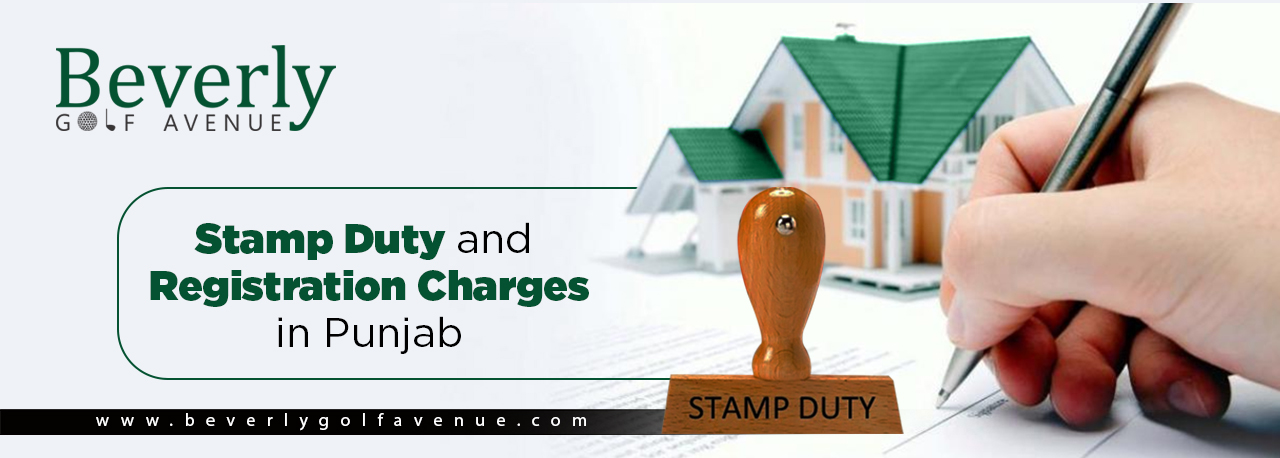Real estate transactions generate revenue for the state government, which is collected through stamp duty and registration fees. When the government assesses this charge, it is used to register a piece of real estate in a municipal registry in the name of the property’s owner.
A buyer must pay stamp duty while registering real estate in India. Furthermore, the fees vary from one state to the next, depending on the legislation. For example, if you want to employ the services of a sub-register registrar in Punjab, you must pay stamp duty and registration costs determined by the transaction amount. Given below is the overview of stamp duty and registration charges.
Stamp duty charges
In the northern province of Punjab, water supply and environmental improvement projects will be supported by one per cent of the entire stamp duty collected, with another one per cent going to the Punjab Infrastructure Development Board. The Punjab government has raised the stamp fee on property registration by 1% to help fund water supply and environmental rehabilitation activities in the state’s urban areas. Depending upon the area and the location of the flats for sale in Mohali, the charges may vary.
If a family member sells or transfers a piece of property, the executors of the will are required to pay Rs 900 in stamp duty. However, if the property is being transferred to a blood relative, no stamp duty is required.
The stamp duty charges for women
In Punjab, if the property is registered in a woman’s name, the buyer will be required to pay a smaller stamp duty fee. Stamp duty is now set at 5 per cent of the value of a property for female buyers. It does not matter if the property is owned jointly by two women. The tax rate stays the same. When a joint property is registered in the names of a man and a woman, the stamp duty is 6 per cent of the transaction value.
An example with stamps and registration
Assume you paid Rs 50 lakhs for Luxury apartments in Mohali. Then you realize that, according to the current circular rates, the property is only worth Rs 40 lakhs. Using the selling deed’s stated value of Rs 50 lakhs, you must pay a stamp duty of 7% and a registration fee of 1% for the transaction. Rs 3.50 lakhs in stamp duty and Rs 50,000 in registration fees equal Rs 4 lakhs, which is a total additional outlay of Rs 4 lakhs.
Conclusion
A buyer must pay stamp duty and registration costs in order to become the legal owner of a property. Punjab charges a 7 percent stamp duty on all purchases, and the registration cost is one percent of the total transaction price. You can make such payments with the use of e-website stamping. In addition, the fact that a homebuyer is aware of the charges allows them to take advantage of available tax credits.







